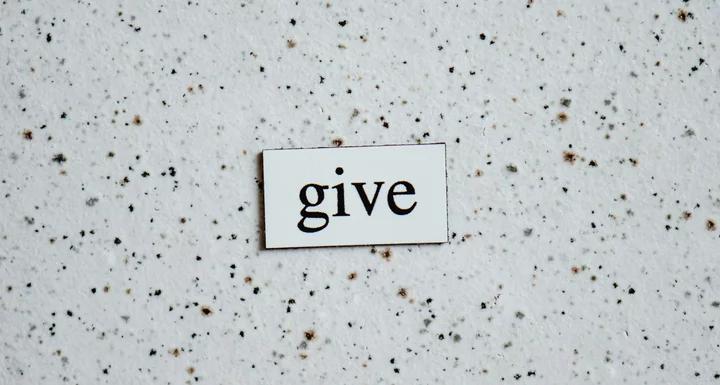Photo by Eva Bronzini:via Pexels.
This last year I went to Mexico over President’s Week with my oldest daughter. A group of us went down and had the privilege of serving at a few orphanages.
One of the men we met ran transitional housing for young men in their late teens. He grew up in rural Mexico, moved to the States in his teenage years — didn’t make good choices as a young man, but eventually got married and had a successful career. While he gave us a tour of the buildings, he emphasized how he could have golfed his way through retirement in Southern California, but felt called to return to his community in Mexico to serve. I’m sure he still likes to golf; nothing wrong with that. But his life became about more than accumulation and recreation.
His story reminded me of one of the things we say at Johnson Wealth Management: we aim to help people live and leave a legacy. This is because we believe that investing is never meant to be just about yourself.
Building wealth is not a bad thing; it’s a good thing. But when it’s an end in itself it can be meaningless. Money — like life — can go poof and be gone in an instant. All of us live and leave something. Even if you never give away a dime in your lifetime, you will when you die.
Investing, financial planning, and wealth building needs a “why.” It’s too easy to get stuck on what to invest in and how to implement a strategy, but the why should guide it all.
So, what’s the why
behind your wealth?
Far too often wealth-building can be used as a means to withdraw from the world. To avoid the hard things. To insulate ourselves from human suffering. Paradoxically, we become less human when we ignore or avoid human weakness. True wealth — holistic wealth — is meant to engage with needs like human poverty, suffering and brokenness.
Our trip reminded me of something else too. When you are surrounded by those with great needs — physical, relational and financial — and when you are looking to actively fill those needs with presence and service, you tend to not get so caught up with what someone said on social media about the latest daily outrage, or who might be predicting the next market crash, or whether interest rates change at the next Fed meeting, or the latest political soap opera.
The news wants to sell you more news, not make you a wiser person and investor. Some of the things we get caught up on in our dopamine-driven, attention-economy take our attention away from the things that matter most — the people and needs right in front of you.
The seventeenth-century French philosopher and mathematician, Blaise Pascal, said it best: “Man’s sensitivity to little things and insensitivity to the greatest things are marks of a strange disorder.”1 To put it plainly, we should spend the most time, energy, and resources on things that matter most.
This season of Christmas reminds us that giving is better than receiving. Joy is not found in money alone but in sharing wealth.
Warren Buffett himself understands some of this. In a recent shareholder letter, he wrote,
I am also lucky that my philanthropic philosophy has been enthusiastically embraced – and widened – by both of my wives. Neither I, Susie Sr. nor Astrid, who succeeded her, believed in dynastic wealth …
It also has been a particular pleasure to me that so many early Berkshire shareholders have independently arrived at a similar view. They have saved — lived well — taken good care of their families — and by extended compounding of their savings passed along large, sometimes huge, sums back into their society …
[My kids] have each spent far more time directly helping others than I have. They enjoy being comfortable financially, but they are not preoccupied with wealth.2
Preoccupation with money is poison. Get to the bottom of how to use the money and time you’ve been given as an intentional tool for the greatest things in life.
“I’m not Warren Buffett,” you might say. Few people are. The size of the gift is not what matters.
Jesus of Nazareth pointed that out a long time ago when drawing attention to the gift of a poor widow that outdid the rich: “this poor widow has put in more than all of them, for all of them have contributed out of their abundance, but she out of her poverty has put in all she had to live on” (Luke 21:3-4, NRSV).
You can give a ton and it means nothing.
You can give nearly nothing and it means everything.
Poverty of pocketbook and poverty of heart are two different things.
Don’t get me wrong. Doing great things isn’t always going on a trip to serve communities affected by various kinds of poverty (though I encourage it!). Nor does it need to be writing a massive check to an institution, church, hospital or nonprofit (though I encourage that too!). Greatness can be doing seemingly small things over and over again. Sometimes those things, those needs, and those people are right in front of you.
Look.
Then give.
###
Sources:
1. Pensées, Penguin Classics, p. 237.
2. November 25, 2024. Accessed online.
###
Brandon Stockman has been a Wealth Advisor licensed with the Series 7 and 66 since the Great Financial Crisis of 2008. He has the privilege of helping manage accounts throughout the United States and works in the Fortuna office of Johnson Wealth Management. You can sign up for his weekly newsletter on investing and financial education or subscribe to his YouTube channel. Securities and advisory services offered through Prospera Financial Services, Inc. | Member FINRA, SIPC. This should not be considered tax, legal, or investment advice. Past performance is no guarantee of future results.

CLICK TO MANAGE